Let My People Go: The Story of Israel est un film américain de genre Documentaire réalisé par Marshall Flaum avec Richard Basehart
Let My People Go: The Story of Israel (1965)
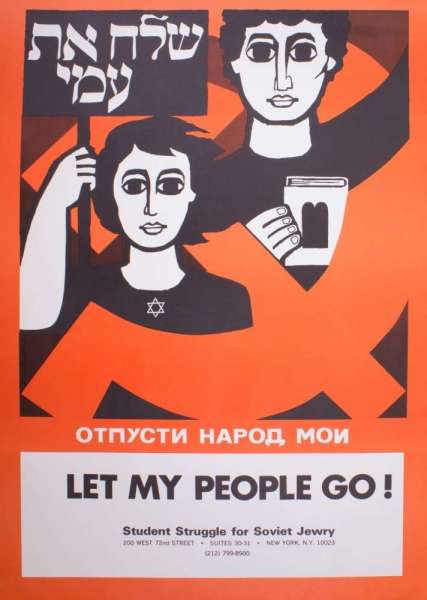
Si vous aimez ce film, faites-le savoir !
Durée 1h
Réalisé par Marshall Flaum
OrigineEtats-Unis
Genres Documentaire
Themes L'immigration, Religion, Documentaire sur le droit, Documentaire sur une personnalité, Documentaire sur la religion, Religion juive
Note68%










Let My People Go: The Story of Israel is a 1965 documentary film directed by Marshall Flaum. It was nominated for an Academy Award for Best Documentary Feature in 1965 and won the United Nations Award in 1961 from the British Academy of Film and Television Arts. Flaum also produced and wrote the documentary.
With narration by Richard Basehart and an original score by Israeli composer Marc Lavry, Let My People Go depicts the story of the efforts to create a homeland for the Jewish people, interweaving archival footage of such individuals and events reaching back to Theodor Herzl in 1897 at the First Zionist Congress in Basel, Switzerland. The film shows World Zionist Organization president Chaim Weizmann meeting with Arthur Balfour, who authored the Balfour Declaration of 1917, which stated that "His Majesty's government view with favour the establishment in Palestine of a national home for the Jewish people". The documentary showed Jewish refugees on ships barred from entry into the Mandate Palestine following the White Paper of 1939 that restricted Jewish immigration and included film taken during The Holocaust that had not previously been seen depicting Jewish life in the Warsaw Ghetto and a young woman carrying her unmoving child, as well as the "illegals", displaced persons who had attempted to evade the British blockade after World War II who were detained in British DP camps in Cyprus. After showing people listening to a shortwave broadcast of the proceedings in 1947 at the United Nations approving the partition plan that led to the creation of the State of Israel on May 15, 1948, the film ends with men and women planting trees in memory of the six million victims of The Holocaust.
The film was broadcast in the United States in April 1965 on a nationwide network of independent stations, with the sponsorship of the Xerox Corporation.
Acteurs

Richard Basehart
(Narrateur (voix))
Commentaires
Postez un commentaire :
Suggestions de films similaires à Let My People Go: The Story of Israel
Il y a 51 films ayant les mêmes acteurs, 2 films avec le même réalisateur, 8965 ayant les mêmes genres cinématographiques, 6255 films qui ont les mêmes thèmes (dont 8 films qui ont les mêmes 6 thèmes que Let My People Go: The Story of Israel), pour avoir au final 70 suggestions de films similaires.Si vous avez aimé Let My People Go: The Story of Israel, vous aimerez sûrement les films similaires suivants :

The Yanks Are Coming (1963)
Réalisé par Marshall Flaum
Origine Etats-Unis
Genres Documentaire
Thèmes Documentaire sur la guerre, Documentaire historique
Acteurs Richard Basehart
Note51%





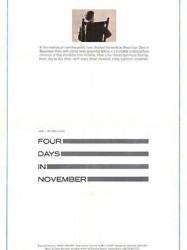
Four Days in November (1964)
, 2h2Réalisé par Mel Stewart, Mel Stuart
Origine Etats-Unis
Genres Documentaire
Thèmes La famille, Documentaire sur le droit, Documentaire historique, Documentaire sur une personnalité, Documentaire sur la politique, Politique
Acteurs Richard Basehart
Note74%






The Forgotten Refugees (2005)
, 49minutesGenres Documentaire
Thèmes Afrique post-coloniale, L'immigration, Religion, Documentaire sur le droit, Documentaire sur la guerre, Documentaire historique, Documentaire sur une personnalité, Documentaire sur la religion, Politique, Religion juive

Voyage au bout du monde (1976)
, 1h33Réalisé par Jacques-Yves Cousteau, Philippe Cousteau, Marshall Flaum
Origine France
Genres Documentaire
Thèmes L'environnement, La mer, Transport, Documentaire sur l'environnement, Documentaire sur la nature
Note71%





En décembre 1972 la Cousteau Society entame une expédition de quatre mois sur l'Antarctique. L'expédition compte sur la collaboration du Musée océanographique de Monaco et du Muséum d'histoire naturelle de La Rochelle, ce dernier étant représenté sur place par son directeur, le professeur Raymond Duguy (1927 - 2012).

The Jewish Steppe (2001)
, 16minutesGenres Documentaire
Thèmes L'immigration, Religion, Documentaire sur le droit, Documentaire historique, Documentaire sur une personnalité, Documentaire sur la religion, Politique, Religion juive
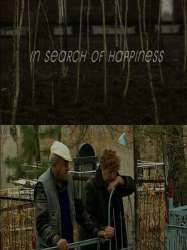
V Poiskach Schastia (2005)
, 54minutesGenres Documentaire
Thèmes L'immigration, Religion, Documentaire sur le droit, Documentaire sur une personnalité, Documentaire sur la religion, Religion juive
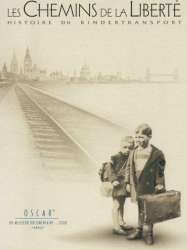
Les chemins de la liberté (1997)
, 2hOrigine Etats-Unis
Genres Guerre, Documentaire, Historique
Thèmes L'immigration, Religion, Documentaire sur le droit, Documentaire historique, Documentaire sur une personnalité, Documentaire sur la religion, Religion juive
Acteurs Morgan Freeman, Edward Asnere, Sean Astin, Martin Landau, Miriam Margolyes, David Paymer
Note74%





Quelques mois avant la Seconde Guerre mondiale, une extraordinaire opération de sauvetage a arraché 10 000 enfants et adolescents juifs au régime nazi. Rapatriés en Grande-Bretagne pour être adoptés, ils durent tisser de nouveaux liens familiaux, supporter les bombardements pour certains, aller libérer leurs propres parents restés en Allemagne. Ils ont tous d'inoubliables histoires à raconter dans ce documentaire.
 , 2h2
, 2h2Origine Etats-Unis
Genres Guerre, Documentaire, Historique
Thèmes L'enfance, L'immigration, Le racisme, Religion, Documentaire sur la discrimination, Documentaire sur le droit, Documentaire sur la guerre, Documentaire historique, Documentaire sur une personnalité, Documentaire sur la religion, Politique, Religion juive, Documentaire sur la Seconde Guerre mondiale
Acteurs Judi Dench
Note76%





Quelques mois avant la Seconde Guerre mondiale, une extraordinaire opération de sauvetage a arraché 10 000 enfants et adolescents juifs au régime nazi. Rapatriés en Grande-Bretagne pour être adoptés, ils durent tisser de nouveaux liens familiaux, supporter les bombardements pour certains, aller libérer leurs propres parents restés en Allemagne. Ils ont tous d'inoubliables histoires à raconter dans ce documentaire.
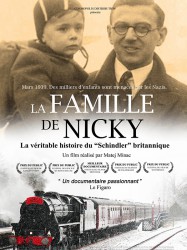
La Famille de Nicky (2011)
, 1h36Réalisé par Matej Mináč
Genres Drame, Documentaire
Thèmes L'immigration, Le racisme, Religion, Documentaire sur la discrimination, Documentaire sur le droit, Documentaire sur la guerre, Documentaire historique, Documentaire sur une personnalité, Documentaire sur la religion, Politique, Religion juive, Documentaire sur la Seconde Guerre mondiale
Acteurs Klara Issova
Note80%





"La famille de Nicky" est l'histoire extraordinaire de Nicholas Winton, surnommé le Schnindler britannique, qui avant le début de la seconde guerre mondiale, entre mars et août 1939, a sauvé 669 enfants tchèques et slovaques, pour la plupart juifs, du génocide nazi. Le film mêle fiction, documents d'archives inédits, et témoignages émouvants des protagonistes de cette histoire, parmi lesquels Nicholas Winton en personne et Joe Schlesinger, journaliste à la CBC et narrateur du film. La "famille" de Nicholas Winton compte aujourd'hui plus de 5 000 personnes dans le monde entier, qui lui doivent la vie.

المنام (1987)
, 45minutesRéalisé par Mohamed Malas
Genres Documentaire
Thèmes Afrique post-coloniale, L'immigration, Religion, Documentaire sur le droit, Documentaire sur la guerre, Documentaire historique, Documentaire sur une personnalité, Documentaire sur la religion, Politique, Religion juive
Note62%





The film was composed of several interviews with different Palestinian refugees including children, women, old people, and militants from the refugee camps in Lebanon. In the interviews Malas questions his subjects about their dreams at night. Through their answers, the film attempts to reveal the underlying subconsciousness of the Palestinian refugee. The dreams always converge on Palestine; a woman recounts her dreams about winning the war; a fedai of bombardment and martyrdom; and one man tells of a dream where he meets and is ignored by Gulf emirs. According to Rebecca Porteous, the film constructs "the psychology of dispossession; the daily reality behind those slogans of nationhood, freedom, land and resistance, for people who have lost all of these things, except their recourse to the last.
 Connexion
Connexion